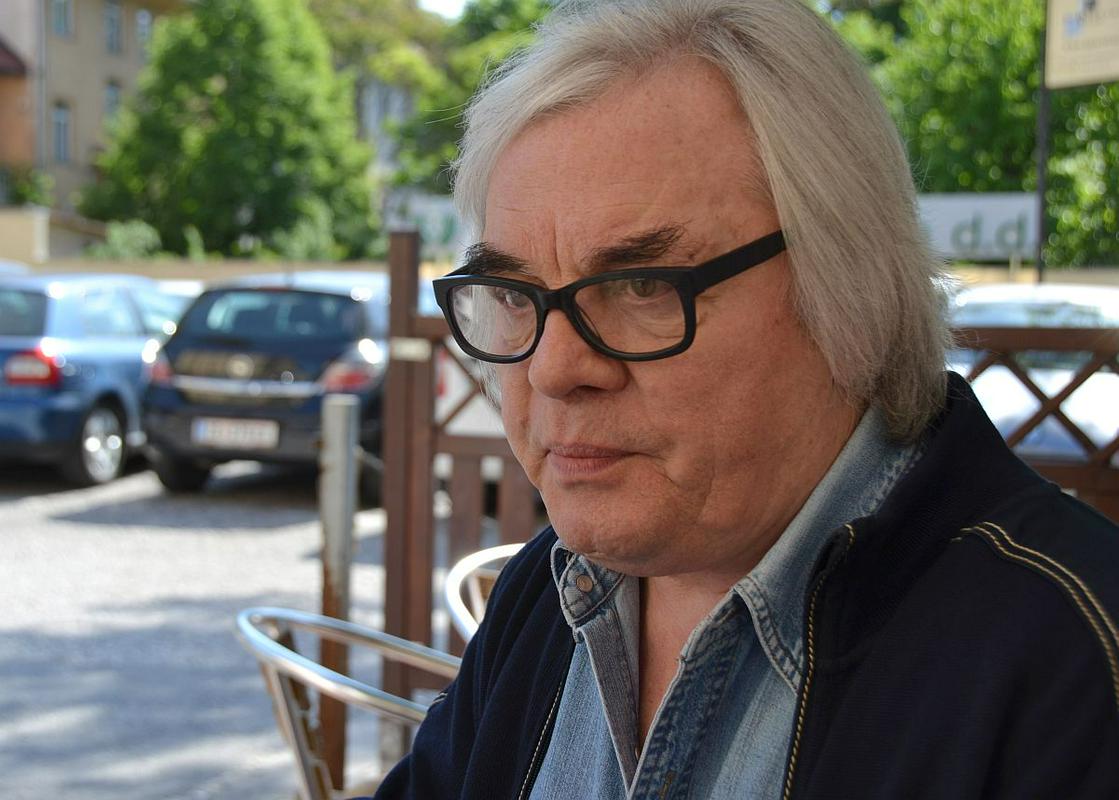Lado Leskovar, Slovenian folk music singer, chanson singer, actor and Slovenian ambassador for UNICEF. Born into a musical family – his father was a conductor of a military orchestra, his uncle a musician – he has been in close contact with music and film from an early age, and he performed in the children's film Kekec, still very popular today. Indispensable at many festivals of popular music and television shows, he represented Yugoslavia at the Eurovision Song Contest in 1967 in Vienna. Lado Leskovar is not only a musician, but has also acted in several films (Grajski biki, Isadora etc.) and works as a journalist.
Not many musicians in Slovenia can boast more than 300 songs and chansons, and it is even rarer to find one with a musical career spanning over decades. I asked him to tell about his creative achievements.
I have been professionally on the music stage since 1963. I have also appeared in several films (1951 – Kekec, 1965 – Grajski biki (Stronghold of Toughs), 1966 – Kam po dežju (After the Rain Stops) / Serbia, Macedonia / 1967 – Isadora / USA – with Vanessa Redgrave /), and in the award-winning performances of the Slovenian Youth Theatre (Ljubljana) and Atelje 212 (Belgrade). Music was only the basis of my work on stage.
You won awards in many domestic and international festivals. It is difficult to highlight just one award, but still...
..authors win in festivals, we performers only help them. I'm most pleased about the award for the song Potraži me u predgrađu (Look For Me In The Suburbs) by authors Zdenko Runjić and Drago Britvić in 1964 at the biggest Yugoslav Festival in Opatija, where I performed as the first male singer from Slovenia at the invitation of Croatian television.
Your songs are known and sung by practically everyone in Slovenia, even the younger generations. Are you proud of it?
Not only in Slovenia, throughout the former Yugoslavia and elsewhere. I don't know why I should be proud.
Lado Leskovar is not only a musician, he is a...
..good father, husband, housekeeper, friend...
Do you think that music can contribute to raising the pride of a certain nation?
I think intelligent and honest citizens contribute to pride the most.
You once said that “there used to be beautiful women around us even without the expensive cars”. Do you miss the “old” times, and what did these “old” times mean for Slovenian music?
Time does not return, unfortunately, the music doesn't either. I miss the good old Slovenian songs, which were created by real musicians and poets.
What is the biggest difference that you notice between today's popular music and the popular music and chansons of the time when you started out in your musical career?
The difference is in the quality of writing, composing and performance. Of course, to the benefit of past times.
Music can contribute significantly to the recognisability of a country, its people, culture... Do you remember any events from your long career when your music especially pertained to Slovenia among the listeners?
Popular music is especially heavily influenced by the imperialism of American music. Everybody is singing in English. But why? The real connection with the homeland was always and everywhere the Avsenik brothers.
You are also the Slovenian ambassador for UNICEF. What does this title or role mean to you?
To be able to help children all the more and better.
Livija Kovač Kostantinovič, SINFO
Lado Leskovar, Slovenian folk music singer, chanson singer, actor and Slovenian ambassador for UNICEF. Born into a musical family – his father was a conductor of a military orchestra, his uncle a musician – he has been in close contact with music and film from an early age, and he performed in the children's film Kekec, still very popular today. Indispensable at many festivals of popular music and television shows, he represented Yugoslavia at the Eurovision Song Contest in 1967 in Vienna. Lado Leskovar is not only a musician, but has also acted in several films (Grajski biki, Isadora etc.) and works as a journalist.


































































